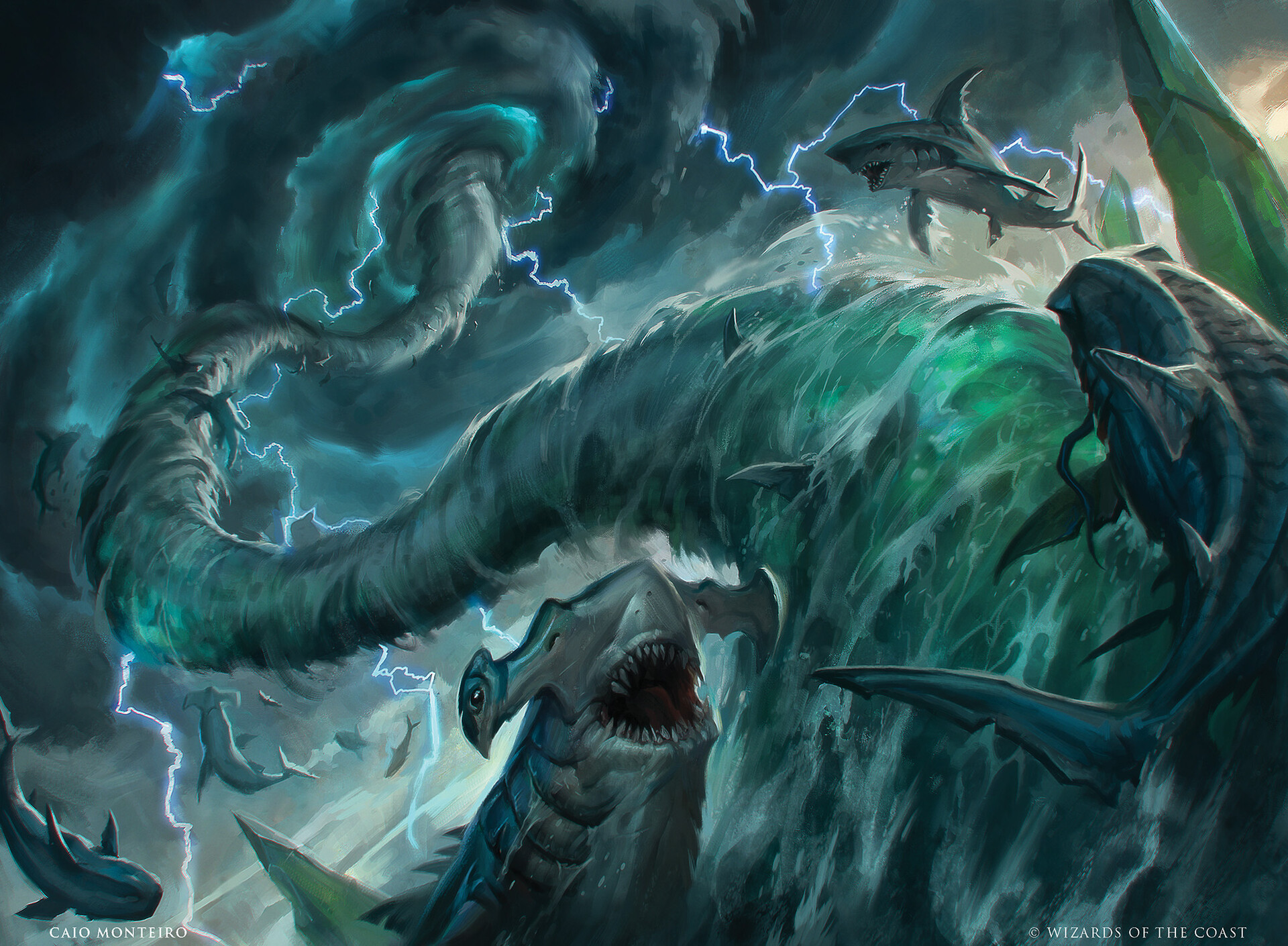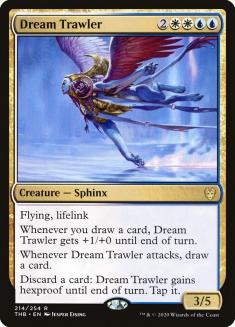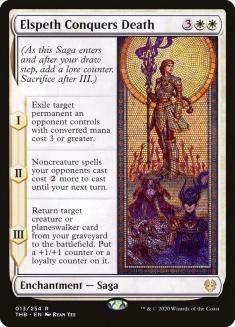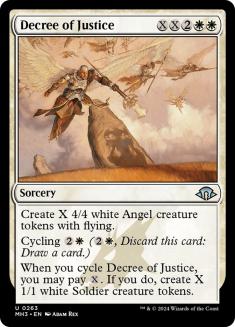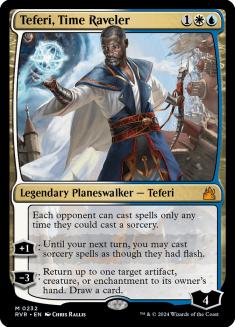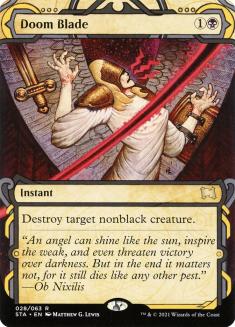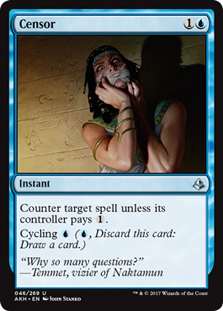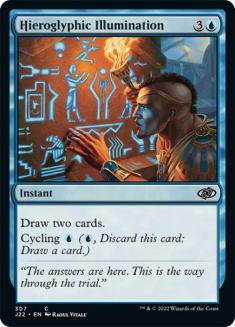To qualify as a control win condition, a card must meet certain criteria. When that win condition is in the form of a creature, it must be very special to take us across the finish line. Creatures in control decks are easy targets to pick off if they have weak defenses. Since there are only a handful of creatures but an excess of spells, enemy removal will sit in the opponent’s hand until one of these rare beasts appears.
This series of plays usually leaves the control player in distress. Tapping out for a threat, only to have it easily removed and having no mana available, is a recipe for disaster. For these reasons, control must be very picky on what it uses to take down the enemy.
Dream Trawler is currently the gold standard for win conditions. Not only has it taken Standard by storm, it has also made its mark in Pioneer as a reliable way to take down the game. It doesn’t have the vulnerability that many creatures have with its built-in hexproof. Dream Trawler also comes equipped with card advantage opportunities and lifelink, checking all the boxes for what we want in a control win condition.
The only flaw it has is its mana requirement. Dream Trawler would be very difficult to cast outside of exactly Azorius Control. The mana cost is restrictive enough that other control decks have faded in Standard to make way for the one that can consistently cast this magnificent creature. Decks rising and falling in competitive Magic can often be linked to one new card. Dream Trawler took a weak Azorius Control deck and propelled it to the top, while its competitors were forced to take a back seat. Outside of its Azorius mana requirement, the generic cost can be a bit of a hurdle.
Control decks do not like tapping out on their main phase for win conditions. I’ve always leaned toward more tap-out control strategies, but I’m in the minority on this one. When control decks reign supreme, it is typically off the back of being instant-speed-oriented. Keeping mana up every turn, while presenting a game-ending win condition, is exactly where control decks want to be in a vacuum.
This is the reason why most Azorius Control players took their Dream Trawler count from where Corey Baumeister and I had it originally, four, to much lower amounts. I still play three currently in my Azorius Control deck, but many players are down to one or two. The fewer six-drops players use, the less they will be tapping out. This dilemma only applies to Azorius Control, since any other color combination has access to nothing reliable. This was the case until some new Ikoria previews arrived on my desk.
When I saw Shark Typhoon previewed, it immediately took me back to my young adulthood. The first tournament I did well in was Mid-Atlantic Regionals in 2003, utilizing the power of Decree of Justice. Magic has changed quite a bit since then, but cycling is still one of the most powerful abilities that any card can possess.
Having the option to pitch a card for a new one at a very low cost is good enough, but Ikoria has gone further than that. We are back to having abilities attached at the end of some of the cards with cycling, making the upside for their inclusion that much higher. Decree of Justice was rarely cast because of the battlefield impact cycling had. Shark Typhoon will join that elite company as a spell that is rarely cast but usually cycled to cause devastation to an unsuspecting opponent.
Decree of Justice was burned early to produce a blocker or attacker in the early-game. As the game continued, it became a threatening win condition that could not be countered, overwhelmed the battlefield, and replaced itself with another card. Shark Typhoon will recreate that gameplay in Standard, but even better. Decree of Justice is a white spell with an automatic three-mana investment required for cycling. Shark Typhoon will arrive on the scene one mana cheaper, falling right into the lap of every blue mage out there. While white is typically the secondary color of choice for control players, blue is always required. Blue is where the counterspells and card draw rest, making Shark Typhoon that much more appealing as a win condition.
Dream Trawler won’t be replaced by Shark Typhoon, but it will share time with it. Since this new win condition can be pitched on Turn 2 by players trying to hit land drops, it will see play in most control decks moving forward. Hitting land drops is the most important aspect of a spell in a control deck. Win conditions that can help perform this vital task are very rare, as they are typically late-game cards with expensive mana costs. Hands that contain Shark Typhoon and counterspells will bring a lot of control players back to the glory days, having the option of disruption or producing a cantripping, flying Shark in the end step. Dream Trawler will still be an asset to anyone playing Azorius Control, since it is still the most powerful threat in its class, but Shark Typhoon finally gives other color combinations an option.
The cycling ability cannot be countered or disrupted by Teferi, Time Raveler. This is a huge boost for playing against one of the most powerful static abilities of all time. Control players often find themselves at the mercy of a Teferi, Time Raveler, having a hand full of disruption that cannot be used, or a win condition that most certainly will be countered. Shark Typhoon breaks through all those barriers and it even has flying to dodge a blocker that the opponent may have to defend their planeswalker.
Cycling Shark Typhoon will be a popular response prior to blockers being declared. It doesn’t produce a pile of creatures like Decree of Justice did, but instead produces one giant one. This play will craft a brick wall that smashes an enemy attacker and threatens to attack back on the next turn. The vulnerability of the Shark token is clear, but it is not disqualifying. At the beginning of the article, I raised concerns about playing creatures with limited defenses against removal. The Shark token produced has defenses, but not in the traditional way.
The defenses of the Shark token come with the card advantage created by the opponent destroying it and the mana tax the opponent has when killing it on their turn. These two advantages are more abstract than Dream Trawler’s. Card and mana advantage are important factors in landing a victory against any matchup, making the Shark token an acceptable decoy. Luckily for us, the other half of Shark Typhoon has a built-in mechanism that creates a win condition that can’t be dealt with by simple removal spells.
When early Shark Typhoons are drawn, they will be cycled for limited value. As the game proceeds and the battle of resources leaves both players drained, Shark Typhoon arrives in the form of an enchantment to end the game. Unlike Decree of Justice, Shark Typhoon’s less utilized half is permanent. Decree of Justice can have all its Angels removed to make it a bust, whereas Shark Typhoon has a constant flow of Shark tokens arriving with each spell cast. Enchantments are tougher to deal with than creatures, making the late-game easy to close out once it resolves.
Dream Trawler is better at what it does in the late-game, but it doesn’t have cycling and is not usable by decks outside of Azorius Control. Control decks can play three or four Shark Typhoons and not sweat drawing too many in the early-game. Cycling provides an out to a clunky six-mana enchantment that may not be usable in that form. There will be many games where there was never a free moment to invest that type of mana into a card that has no immediate impact on the battlefield. This out and the improved ability to hit land drops make cycling easily the most sought-after ability for control decks.
The versatility and power of Shark Typhoon are strong enough to push blue-based control decks up in the power rankings once again. Control is on the decline in competitive Standard, but that is going to change with the release of Ikoria. Azorius Control is still the front-runner, but there are more cards like Shark Typhoon on the horizon. Win conditions that require just cycling to resolve warms my heart and give me great hope for the upcoming format. I hope to see a return of Censor, or perhaps something better, to give control a powerful Turn 2 disruption spell. That, plus cards like Shark Typhoon, will be enough to give control the boost it needs to return to the top.

